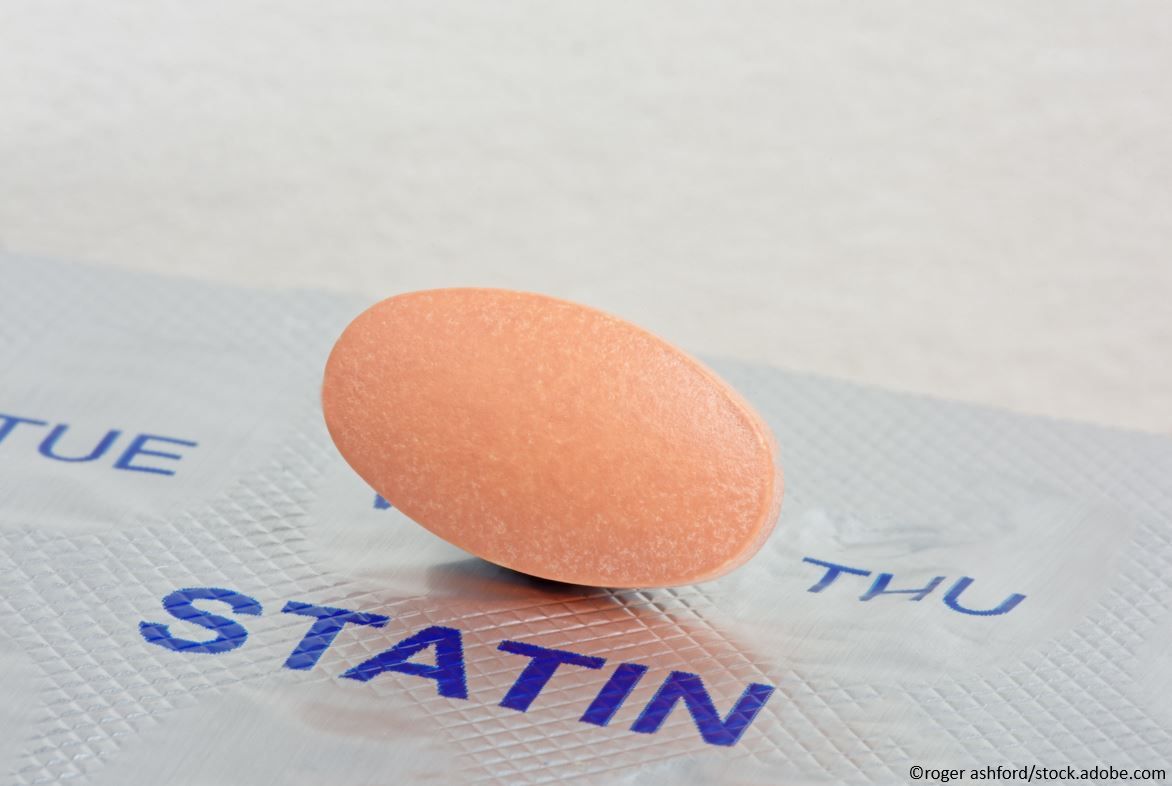- Clinical Technology
- Adult Immunization
- Hepatology
- Pediatric Immunization
- Screening
- Psychiatry
- Allergy
- Women's Health
- Cardiology
- Pediatrics
- Dermatology
- Endocrinology
- Pain Management
- Gastroenterology
- Infectious Disease
- Obesity Medicine
- Rheumatology
- Nephrology
- Neurology
- Pulmonology
Statins Appear Beneficial for CV Outcomes in Primary Prevention Patients with HTN without CVD or Diabetes
In a study of over 26 000 participants, statin use was associated with reduced risk for all-cause and CV mortality compared to placebo.

Statin use for primary prevention in a primary care population with hypertension (HTN) and without cardiovascular disease (CVD) or diabetes is associated with reduced risk of all-cause and cardiovascular (CV) mortality, and in women, reduced risk of myocardial infarction (MI), reported authors of a new study.
Specifically, statin treatment was associated with 17% lower risk of all-cause mortality, 15% lower risk of CV mortality, and in women, 34% reduced risk of MI, according to the Swedish observational study of more than 26 000 participants.
Findings were published online June 27, 2023, in the European Journal of Preventive Cardiology.
“Primary prevention with statins may be considered and offered more frequently and might warrant a more prominent role in the doctors’ toolbox to reduce the risk of mortality and cardiovascular morbidity, especially given the low cost of statins,” wrote first author Tobias Andersson, MD, PhD, of the University of Gothenburg in Gothenburg, Sweden, and colleagues.
Studies in routine primary health care, outside of the clinical trial setting, that examine the effect of statin use on CVD and mortality for primary prevention are limited, noted Andersson and colleagues. They also point out that in the absence of guideline recommendations to initiate primary prevention with statins for individuals with HTN but without CVD or diabetes, some will, and some will not be prescribed the drugs despite similar level of risk.
Investigators used data from the Swedish primary care quality assurance register, QregPV, to evaluate the effect of statins on all-cause mortality, CV mortality, MI, and stroke among 13 193 patients with HTN and no other CVDs or diabetes (mean age, 61 years; 53% women) compared with matched controls without a filled statin prescription.
FINDINGS
Results from the intention-to treat-analysis showed that the risk of all-cause mortality was 17% lower (hazard ratio [HR] 0.83, 95% CI 0.74-0.93; P=.002) and the risk of CV mortality was 15% lower (HR 0.85, 95% CI 0.72-0.998; P=.048) among participants in the statin group than in those in the placebo group during 8 years of follow-up.
During the first 4 years of follow-up, these treatment effects were larger overall with 28% lower risk of all-cause mortality (HR 0.72, 95% CI 0.62-0.84; P<.001) and 20% lower risk of CV mortality (HR 0.80, 95% CI 0.65-0.99; P=.045) among statin-treated patients.
Andersson and colleagues observed no significant impact of statin treatment on risk for MI or stroke; however, they did report a significant interaction between sex and the risk of MI for those in the statin group vs placebo arm.
According to the results, no significant effects were seen for men, but women in the statin arm had 34% lower risk of MI during a total follow-up of 8 years (HR 0.66, 95% CI 0.49-0.88; P=.004) and 39% lower risk during the first 4 years of follow-up (HR 0.61, 95% CI 0.44-0.84; P=.003).
In addition, study authors found that adherence to statin therapy decreased from baseline to 7 years of follow-up, going from 84.1% to 61.9%.
“Our study suggests that statin use in a hypertensive primary care population without CVD or diabetes is beneficial to reduce the risk of all-cause and cardiovascular mortality, and in women myocardial infarction,” wrote Andersson et al.
“Poor adherence to statins has been well documented despite its positive effects on reducing the burden of cardiovascular disease. To address this, the balance between benefits versus potential harm need to be discussed in the doctor-patient meeting before starting primary prevention with statins,” they added.
Reference: Andersson T, Nåtman J, Mourtzinis G, et al. The effect of statins on mortality and cardiovascular disease in primary care hypertensive patients without other cardiovascular disease or diabetes. Eur J Prev Cardiol. Published online June 27, 2023. doi:10.1093/eurjpc/zwad212.
